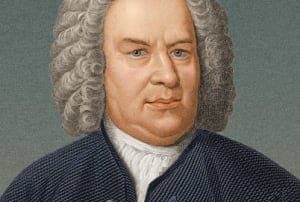PREVIOUSNEXT
Johann Sebastian Bach grew up in modern-day Germany to a family of musicians. Being proficient in organ, one of his uncles, Johann Christoph Bach, introduced him to the instrument. Bach studied the greats of his time and learned to master the organ. He later excelled in various musical disciplines such as counterpoint, which gained him a lot of fame later on.
The Beginning
After graduating from St. Michael, he was turned down for a job. But he later found an opportunity at the chapel of Duke Johann Ernst III in Weimar. He built a reputation as a keyboardist giving him a chance to specialize in the organ while working for the New Church (Now called Bach Church) in Arnstadt.
Being short-tempered and competitive, he mocked a choir student once for not living up to his standard. The student became angry and started chasing Back with a stick. The authorities gave the student a pass and demanded more leniency from Bach.
Jail time
Bach later worked as an organ composer for Weimar's city-state, where he collaborated with professional musicians. He borrowed and employed styles from the icons of early baroque and classical music such as Vivaldi, Torelli, and Corelli.
His title, while working at the city of Weimar, was director of music. However, his employer did not appreciate his talents. That resulted in passing him over to promote someone else (Wihelm Drese Junior), who he disliked. He was frustrated but managed to get a position of Kapellmeister (which is a leader for sacral or choral chamber) in the state of Anhalt-Cöthen. He submitted his resignation but encountered another issue.
The final years
At that time, a composer did not simply hand over their resignation letter and quit. The Prince of Weimar hired and fired his musicians at his preferred timing. Bach went to jail as a result of his efforts at departing. However, Bach refused to give to the Prince's demands. The Prince angrily fired him and released him of his duties.
Rather than working on religious choral music, Bach composed secular musical pieces in compliance with Prince Leopold's wishes. The Prince was a Calvinist and did not want the use of music in worship. He would later compose and perform choral cantatas in his later years while working in Leipzig, inspired by his Gospel readings every Sunday.
His years at Leipzig resulted in his promotion to Court Composer's title. During this time, he began the publication of his organ music. While not achieving the recognition it deserved at its time, his music was innovative in its harmony, employing an unusual mix of chords and progression. His work in sacral and choral music was evidence of his religious devotion, which influenced his style. His reputation, however, was for his mastery of the organ and his creativity in organ music, which included mixing foreign Italian styles with his work.
Photo - https://www.biography.com/musician/johann-sebastian-bach
Sign up for our sacral music event Organ Apotheosis this March!

